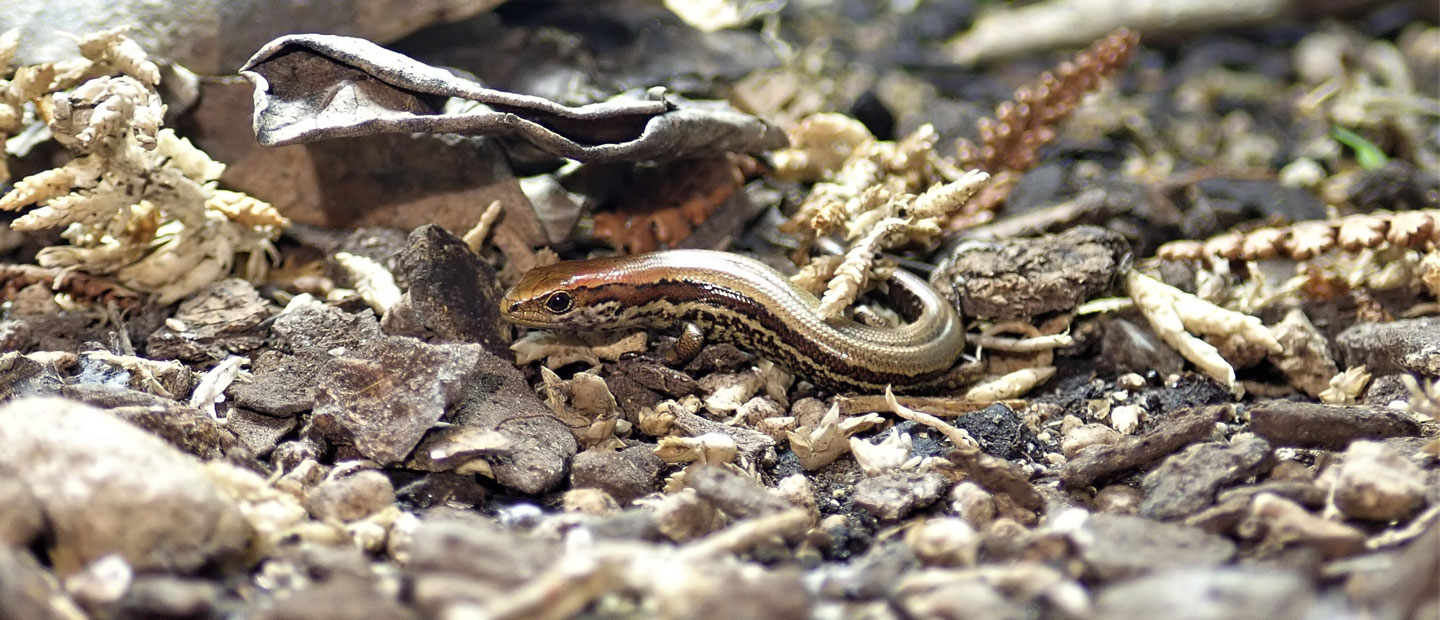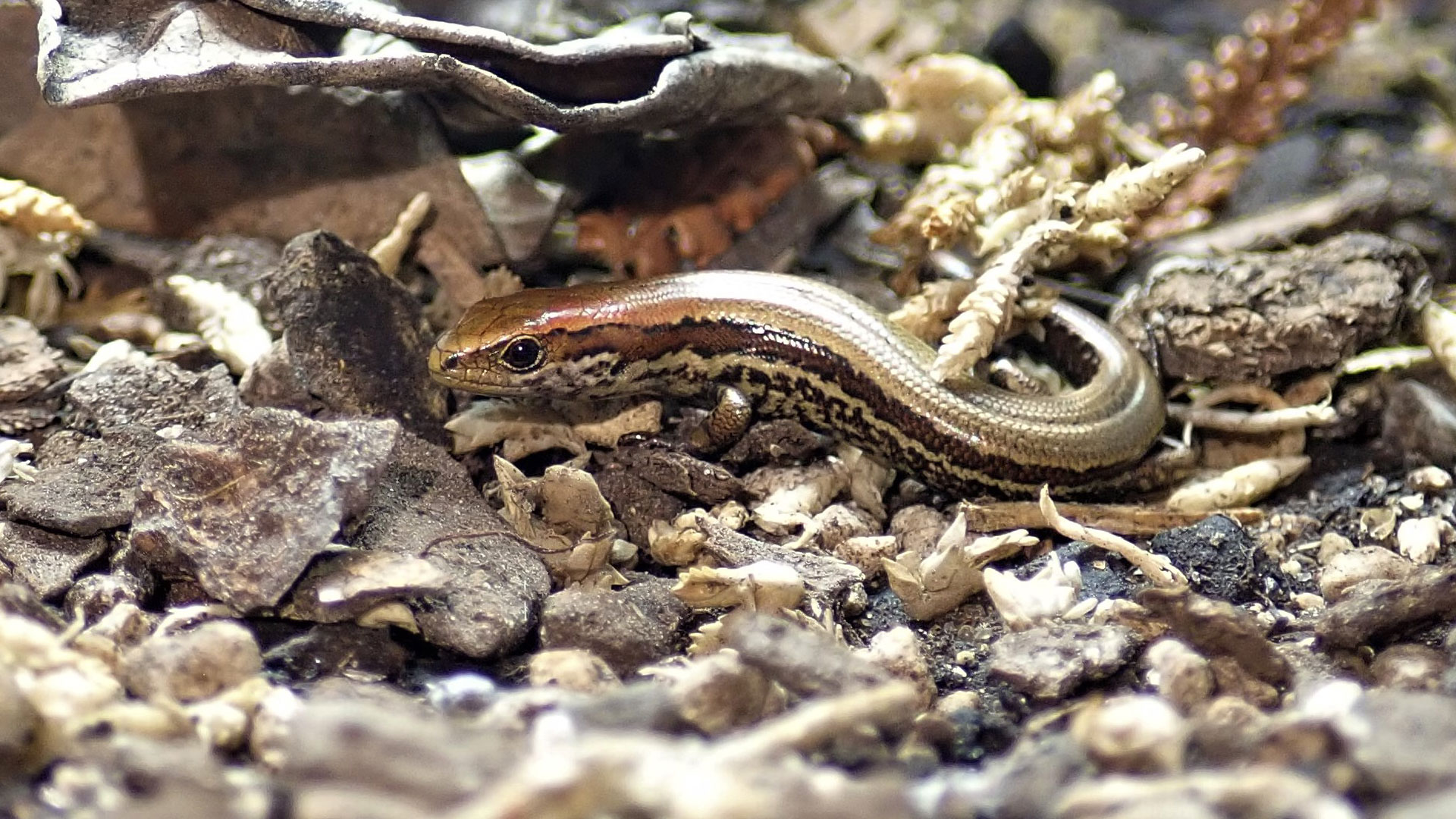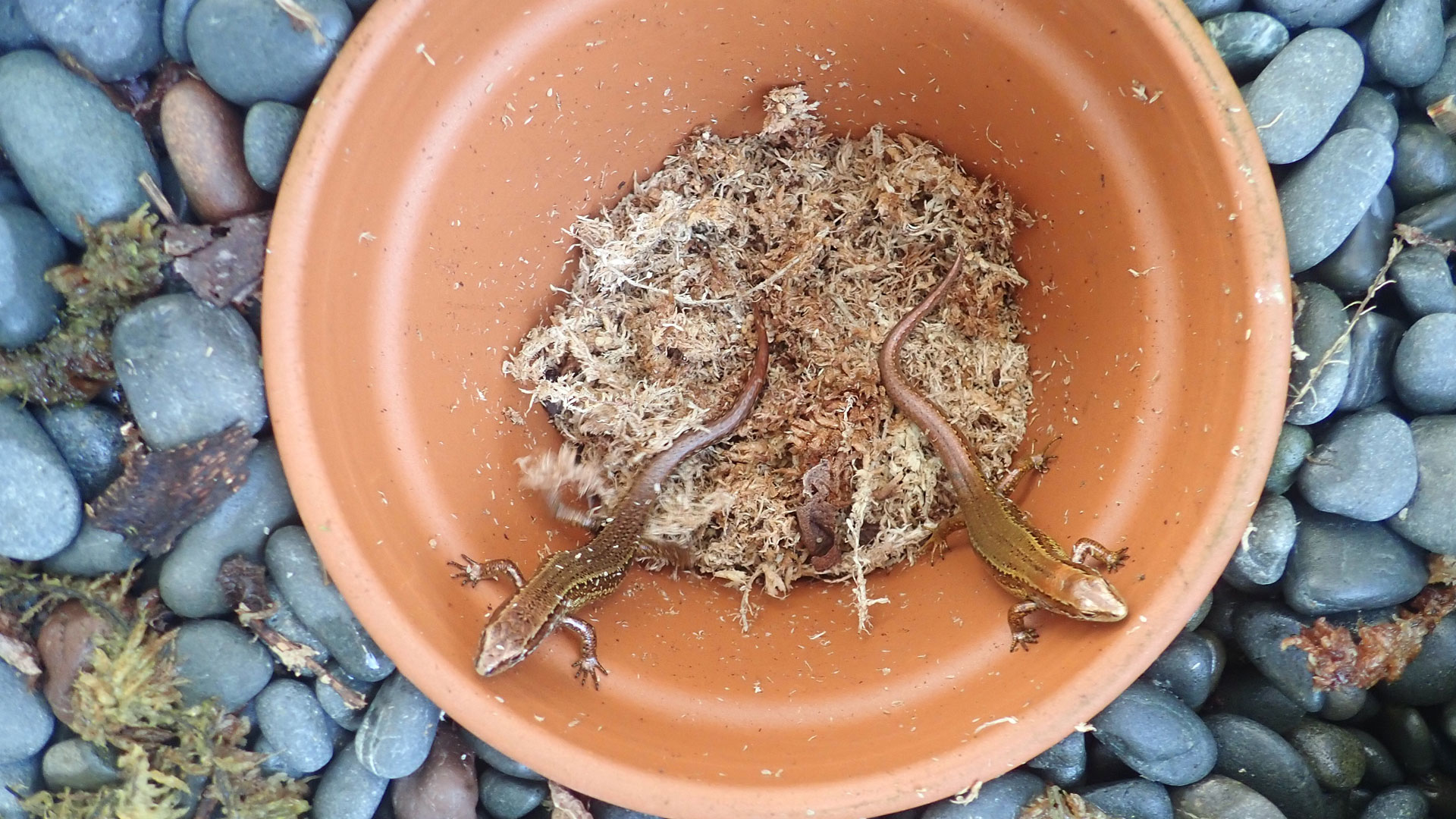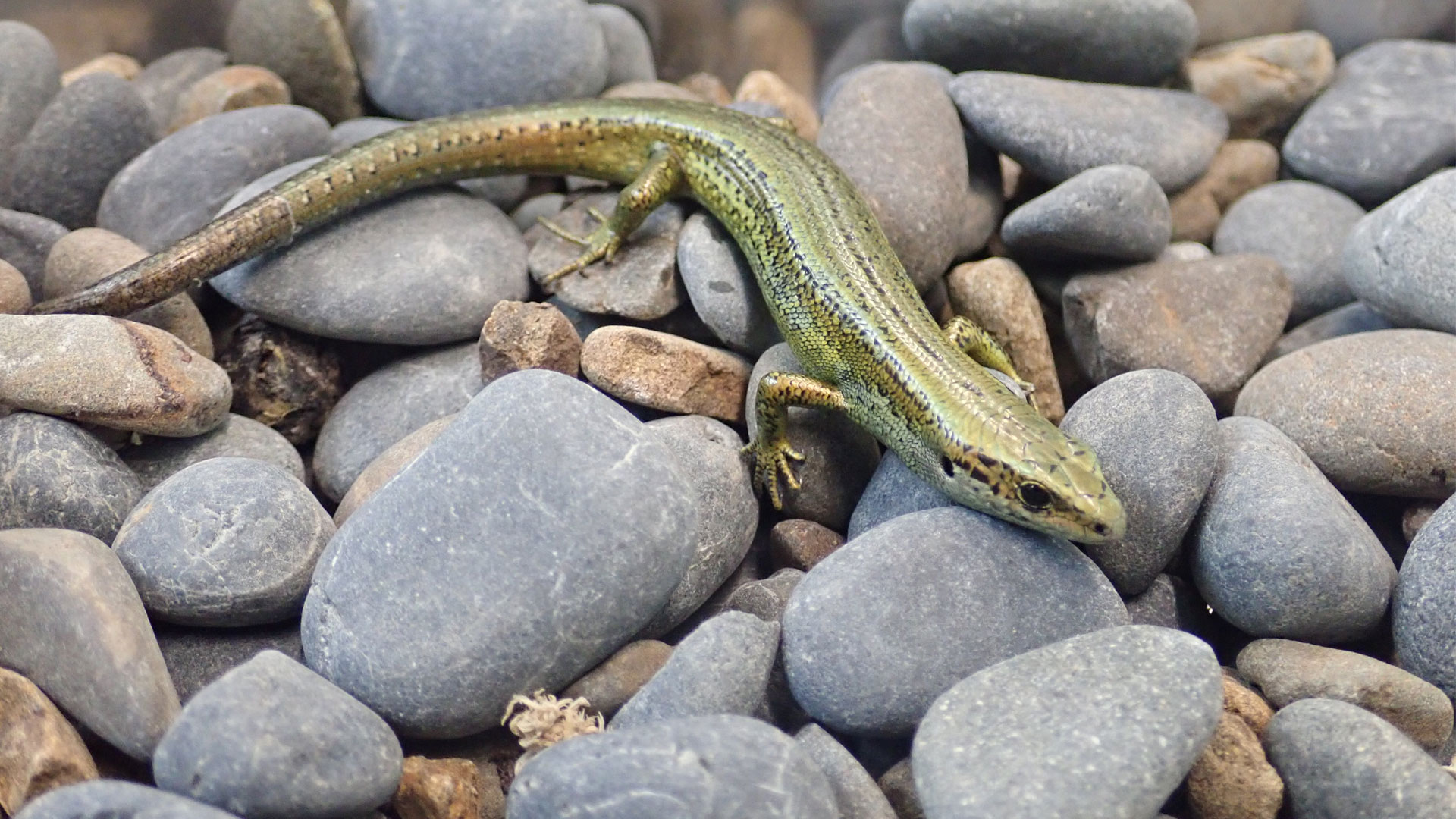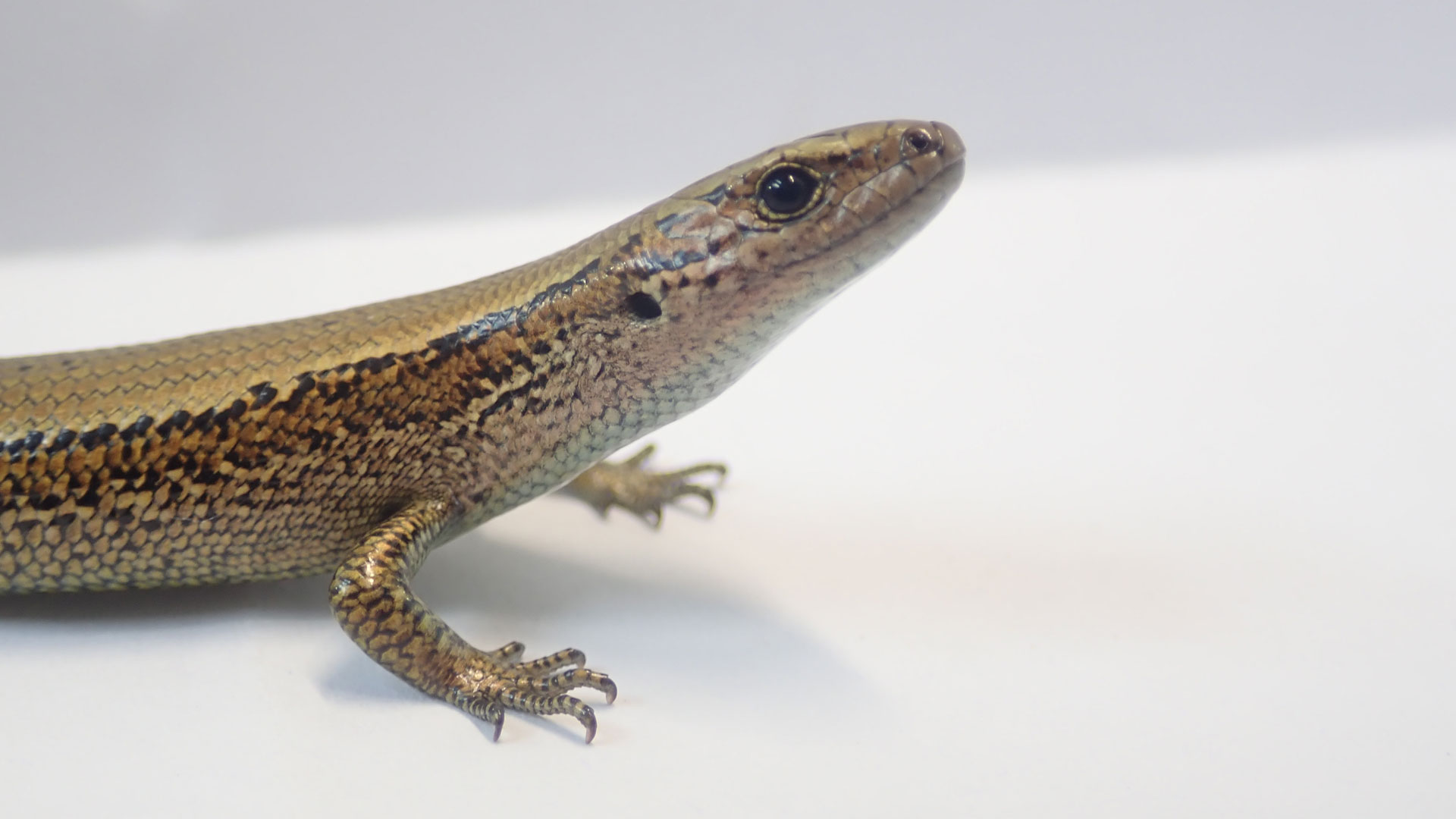Today is #WorldLizardDay – the perfect day to share our Wild Work for Aotearoa’s lizards!
Auckland Zoo is involved in several conservation projects around New Zealand for some of the countries rarest lizards. Our ectotherm team use their expertise in the field and at the zoo to research, monitor and engage in vital breeding programmes to safeguard the futures of native species at-risk in the wild.
We’re currently caring for two critically threatened coastal lizard species, the Chesterfield and cobble skinks, in partnership with the Department of Conservation. Just before separate cyclonic storms destroyed some or all of their coastal habitats, small numbers of each species were carefully collected by DOC and brought to Auckland Zoo as insurance populations. Caring for these skinks requires great skill and careful observation as our keepers make sure that both species are living in optimal environments for their needs. At the start of each breeding we carefully pair males and females together matching their sizes for compatibility remaining alert for signs of aggression in order to maximise breeding success. We’re pleased to say our methods have worked a treat and this past year has seen the best breeding year for both species since they arrived at the Zoo! Eventually, the offspring of both species are expected to be released into the wild once a suitable and predator-free habitat is located.


